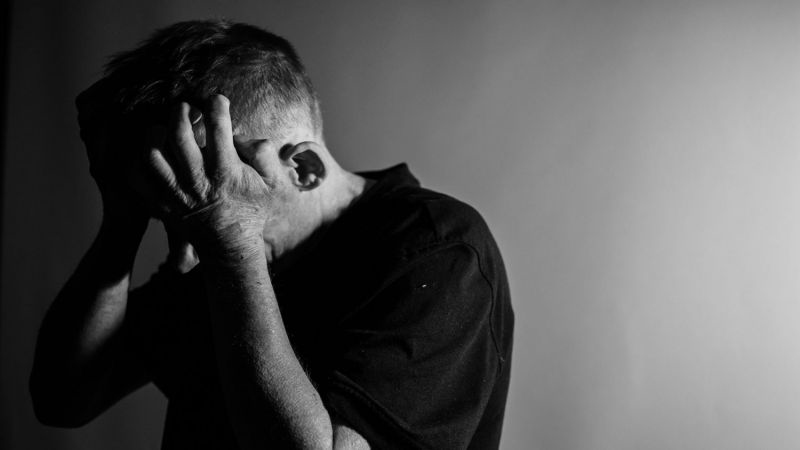
Featured Item

Men also suffer gender-based violence
Published
4 years agoon
A Jewish man from the South African Jewish community gave a heart-wrenching, anonymous account of how victimisation by Jewish females from a young age had a negative impact on his life, demonstrating how men can also be victims of gender-based violence.
He was speaking at a webinar titled, “Toxic Humanity”, hosted by Koleinu SA, the Union of Jewish Women, and Shalom Bayit. This webinar, the first part of the two-part series, focused on “challenging the narrative in our community”, asking, “Are our boys victims or villains? Are our girls promoters or preventers?”
“I was drawn to speak at this webinar because it addresses toxicity and our community,” said the anonymous man. Looking back, he described his primary school years as “a breeze”, but when he was in high school, he began to be bullied, subjugated, ridiculed, and victimised because of his appearance, particularly the fact that he was overweight.
“The adolescent years are when you form your sexual identity, and two particular incidents stand out that affected me deeply. The first was at a ‘social’ [event] at the beginning of high school. I was standing by myself, and a girl came up to me, touched me, said how attractive I was, and asked to go out with me.”
Sensing he was being used in some kind of dare or game, he stammered that he would go out with her. “She turned to her friends and started laughing,” clearly showing it was just a ploy to humiliate him. Then at the end of the year at a camp, “two girls passed, and looked at me and a friend, saying we were a ‘2’ and a ‘3’. We realised we were being rated.”
From that point on, he was always excluded or judged by girls, and developed a phobia about talking to them. It became such an issue, that he decided to become frum(religiously observant) just to avoid interacting with girls. He also left his co-ed school, attending an all-boys school until matric. “It was easier to be disconnected from girls, but in my 20s, when I wanted to get married, I realised I had no idea how to interact with women.”
Doubting he would ever marry, he eventually met his future wife who “was profoundly spiritual and had a deep sense of self. She was also very attractive.” But instead of seeing her as his beshert (soulmate), his past made him view the match as simply lucky.
For the next ten years, he endured comments from people implying that someone like him should never be with someone as attractive as her. “Our sexual life was also in shambles as I had no idea what I was doing. I never took it seriously, and was only focused on myself.” It all came to a head, as his wife eventually said she “felt dismissed in our marriage and intimate life”.
The couple are now working to fix their marriage, and also to raise their children, especially their boys, to have a healthy relationship with the opposite sex.
“My story isn’t one of violence, but I wonder if it would have been different if those young girls who rated and mocked me had been taught differently. People need to know that boys and men in the community may be suffering, but we can change things for the next generation,” he said.
Matric students Dani Sack and Daniel Strous shared how they witnessed male and female teens around them perpetuating gender stereotypes and micro-aggressions on a daily basis. Strous, in particular, commented that females and males both objectify each other, calling one another terms like “snack” or “chick”, and touch each other inappropriately in a way that is “invasive and dehumanising”.
“I have witnessed what others call ‘locker-room talk’ or ‘dark humour’, and as a male, I would like to press for change. Everything needs to be re-evaluated. If we refuse to look at the greater picture, we will be kept in the past. I applaud Koleinu SA for what it does, and what we are striving for as a collective. The work has started, but we haven’t done nearly enough.”
Rees Mann, a male survivor of sexual abuse and gang rape, and the director of South African Male Survivors of Sexual Abuse, said that men need to support each other more. For example, when male pupils at a South African school testified that they had been sexually violated by their coach, people said they were bringing down the name of the school. “They didn’t rally around them, they ostracised them. Men have no empathy towards each other in times of crisis.”
Clinical psychologist Ruth Ancer emphasised that domestic and gender-based violence is a reality in the South African Jewish community. She said recent research shows that Jewish women take far longer to change their situation if they are victims of abuse, taking seven to 15 years to take action as opposed to three to five years for other women.
This could be because they “sense that a woman’s role is to keep shalom bayit [peace in the home], and that violence and chaos is their failure. They may feel that they are bringing shame to their family or themselves. They may also believe it’s lashon hara[derogatory speech about a person], even though reporting abuse doesn’t fall into that category. It may also be because of community support networks and resources, they cope better.”
“Violence isn’t just men abusing women. It can also be men to men, women to women, or women to men. We need to ‘role model’ quality relationships, based on respect,” she said.
Clinical psychologist Leanne Stillerman Zabow focused on the role of parents in nurturing children who feel safe and secure in the world, which will in turn lead to them becoming adults that are comfortable with themselves.
“If we have adverse life experiences we may develop a ‘shell’. That can lead to toxic rage as adults. There are many people, particularly men, who may be adults but have a ‘wounded child’ inside. So parents need to create a home environment for children to be safe with their own vulnerability and to express their feelings. It must be a place to process emotions. It’s hard to be perfect, but we need to be mindful. We tend to repeat what we haven’t resolved, so think about how you were socialised and what you witnessed between your own parents. To avoid carrying it forward, invest in therapy or one of the many organisations that can help.”
Clinical psychologist Yochi Ress, who is also involved in the Mankind Project, said that as a leadership consultant, most successful leaders have the core qualities of vulnerability and emotional intelligence. “While historically leaders were more patriarchal, this has now been overturned,” Ress said.
He spoke of the archetype of masculinity as defined by Carl Jung, an archetype being a “universal and enduring pattern in the psyche across time and geography”.
“In modern society we don’t always have spaces or rituals to express the male archetype in a healthy way, so the Mankind Project helps men do this,” Ress said. “We work with men to reclaim the ‘sacred masculine’.”
He would like to see this done in the Jewish community. “For example, the Barmitzvah is a very outwardly focused celebration, but there could also be an inner focus of mastering ourselves and changing the narrative. We need to be able to ‘go sit in the fire’ and do the deep work to create something new.”










